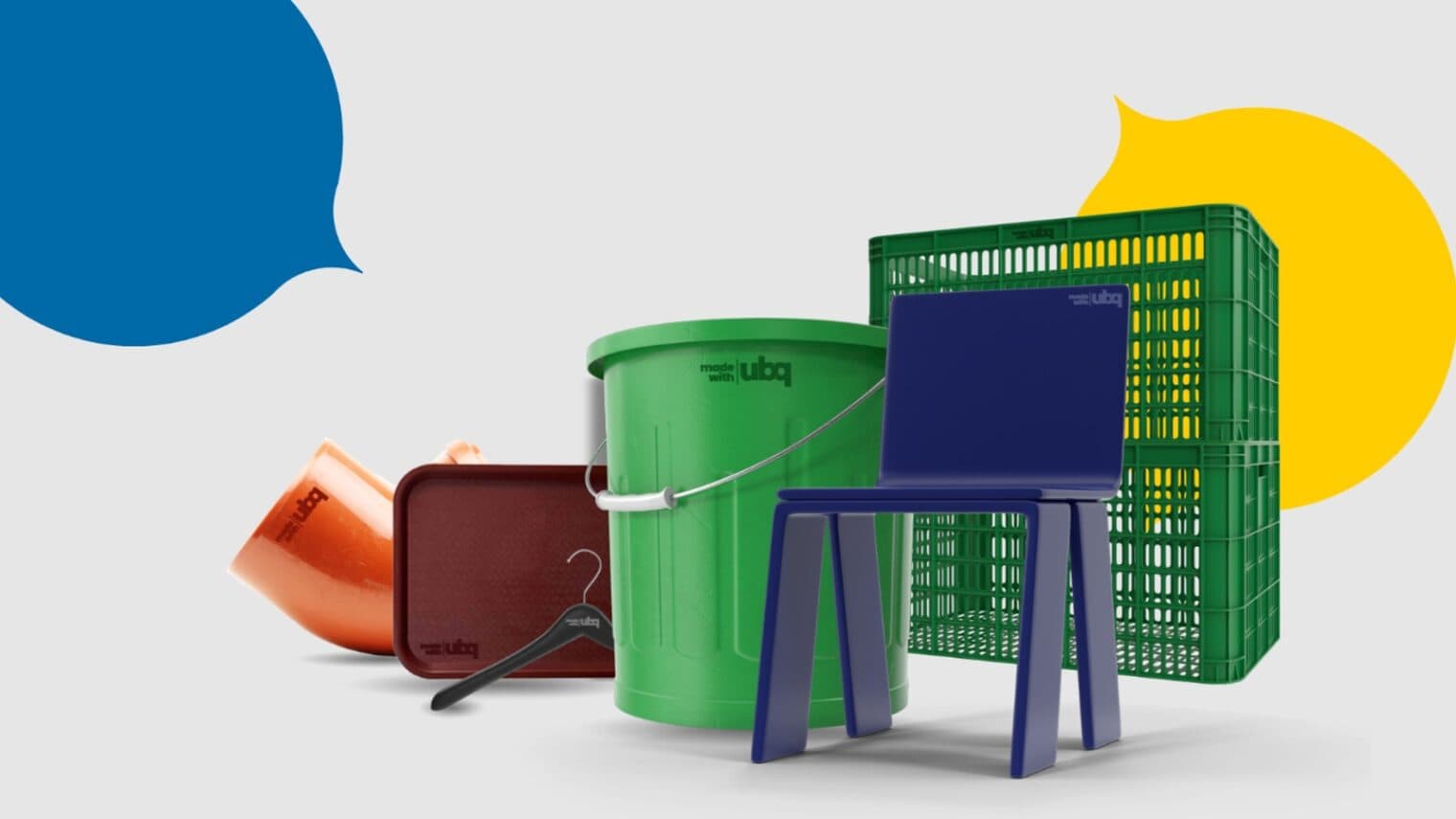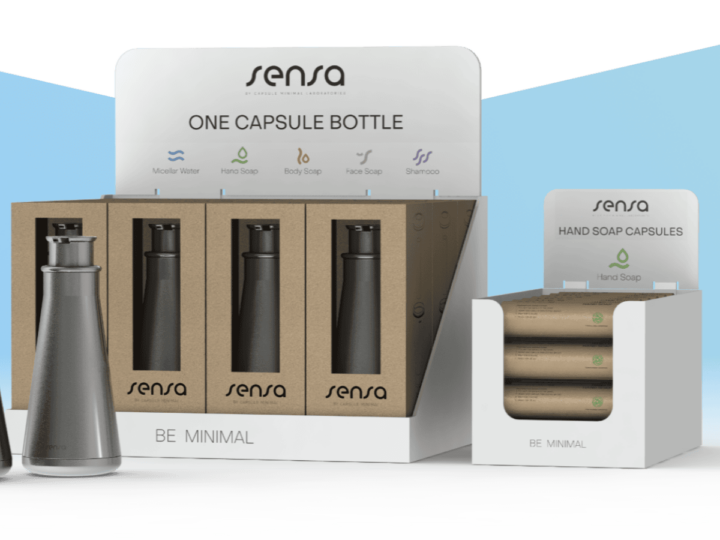Whether it’s takeout containers or disposable medical devices, the amount of trash generated in today’s world is wasteful and polluting beyond imagination.
Here are six Israeli companies that used their imagination to figure out how to upcycle seemingly useless garbage and industrial byproducts into valuable products.
These companies exemplify a circular economy in all its green glory.
UBQ Materials of Tel Aviv makes a plastic substitute from unrecyclable household trash, including both organic waste (such as banana peels, chicken bones and pizza boxes) and inorganic waste (such as diapers and mixed plastics).
Diverting tons of garbage from landfills and incineration, the multiple award-winning company manufactures a thermoplastic material that customers including Mercedes-Benz, PepsiCo and McDonald’s have integrated into automotive components, pallets, display fixtures, panels, planters and footwear.
NUFiltration of Caesarea collects and sterilizes about 10 percent of the 1 million filters thrown away every year in Israel’s kidney dialysis units, and repurposes them as the core of its efficient water filtration systems.
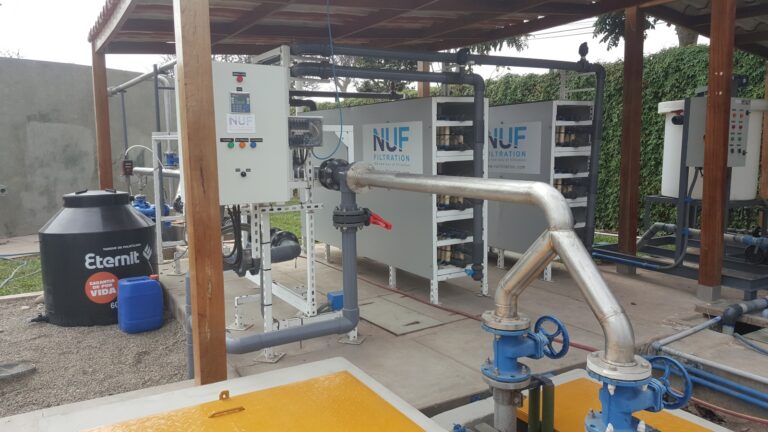
These upcycled filters save lives twice: once by cleansing blood as artificial kidneys and again by cleansing water of pathogens, bacteria, viruses and organic matter. NUFiltration works in many countries and often undertakes emergency humanitarian projects in remote places lacking clean water.
Exosomm upcycles byproducts of the traditional cheesemaking process to create a potent bioactive ingredient in a formula that can potentially benefit millions of adults with inflammatory disorders such as inflammatory bowel disease.
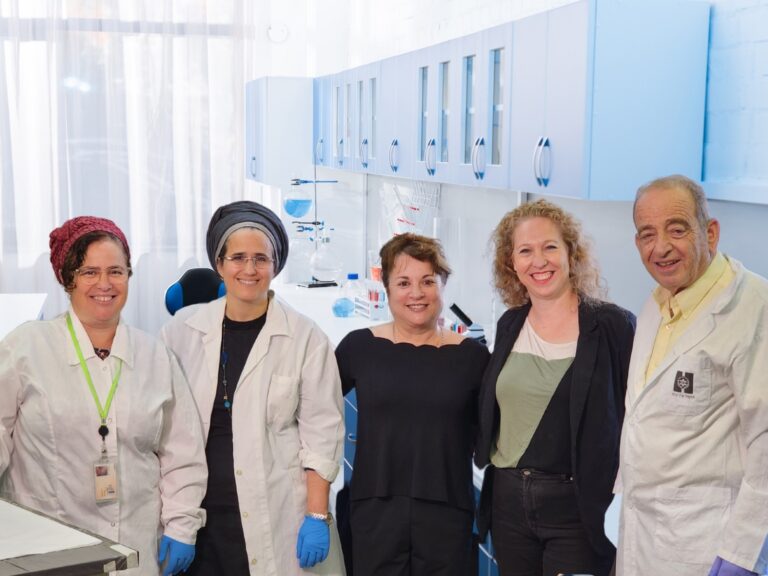
Exosomm’s name comes from the exosome particles in maternal milk that help nurture a robust immune system during the early stages of development. Rescuing bovine exosomes from cheesemakers enables the startup to use them for novel medical food products.
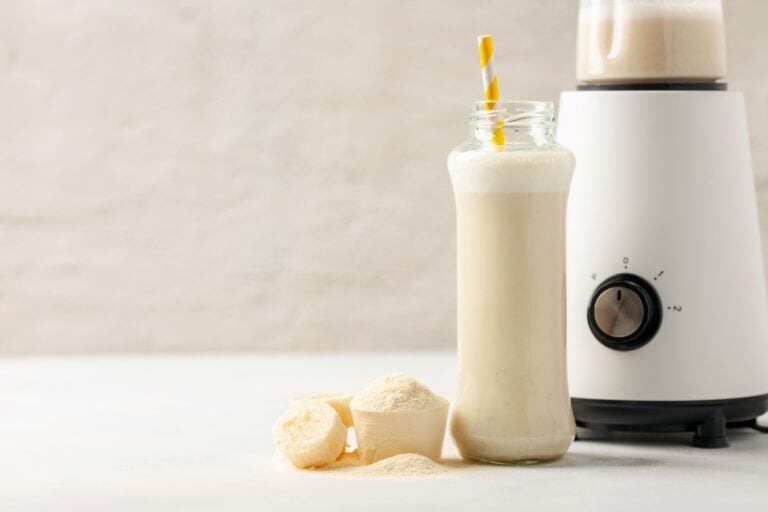
Fabumin of Tel Aviv rescues the thick aquafaba liquid normally poured down the drain by bean and legume canneries and turns it into a powdered plant-based egg substitute for industrial bakeries.
Fabumin binds, emulsifies and foams when used in baking and cooking, behaving exactly the same as eggs in products such as breads, pastries, cakes, cookies, crackers, mayonnaise, spreads, meatballs, hamburgers and snacks. The startup is piloting its product with the intention of entering the European market in 2024.
CarobWay of Rehovot has introduced a clean-label, low glycemic index (GI) natural sugar replacer derived from whole carob fruit — including the usually discarded seeds and pulp — for food and food supplements.
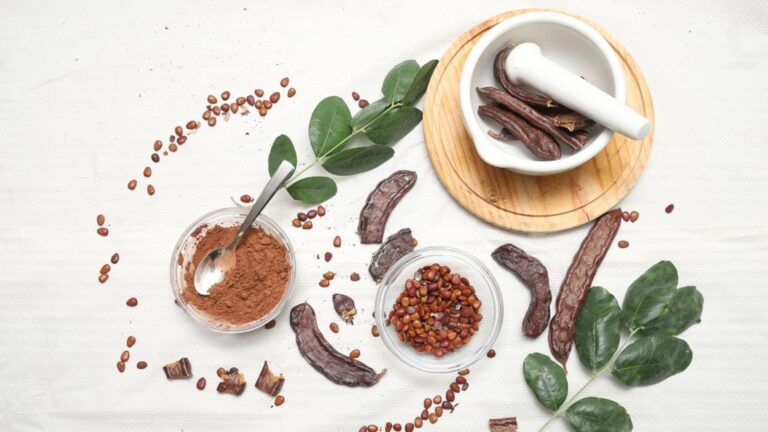
“This zero-waste sweetener is made from deseeded pods and available as a syrup,” said Udi Alroy, CEO and cofounder. “You can plug it easily into almost any food and beverage application. We chose specific varieties of the carob tree that grow locally and whose fruit provides a mild, pleasing caramel flavor.”
More Foods of Tel Aviv has a fast-growing customer base in the Israeli and British restaurant sector for its meat-like pulled strips, chunks and minute steaks made from pumpkin and sunflower seeds after they were pressed to make vegetable oil.
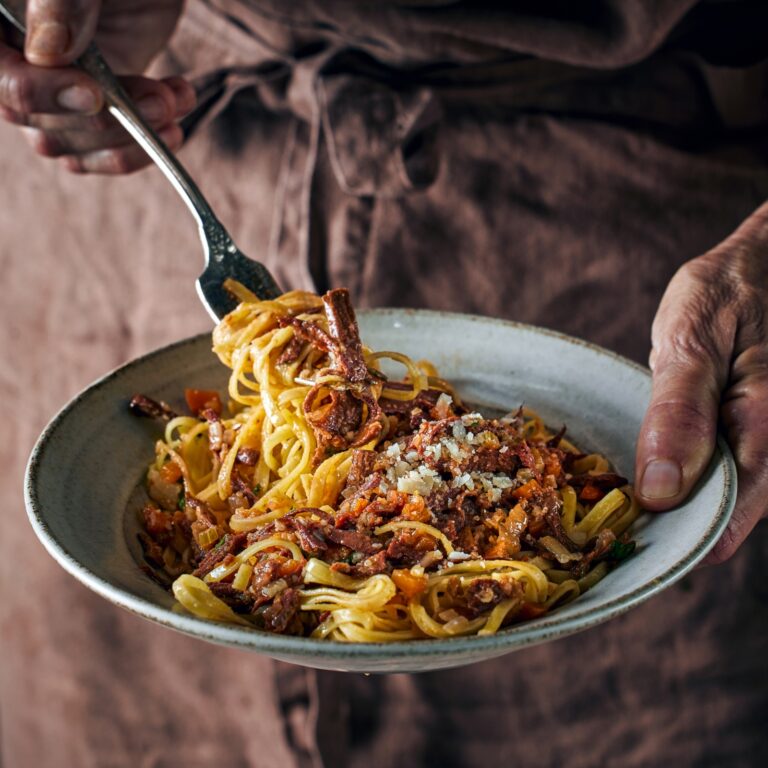
This food-tech company sources its seeds from European oil manufacturers, who normally had no other alternative than to sell the leftover “press cake” of crushed seeds to companies that make protein powders, fertilizers or animal feed.
Mush Foods of Rehovot uses manufacturers’ food waste as a medium in which to grow a highly nutritious mycelium protein ingredient targeting the growing flexitarian market. The product allows food manufacturers to halve the animal protein content in beef products such as burgers.
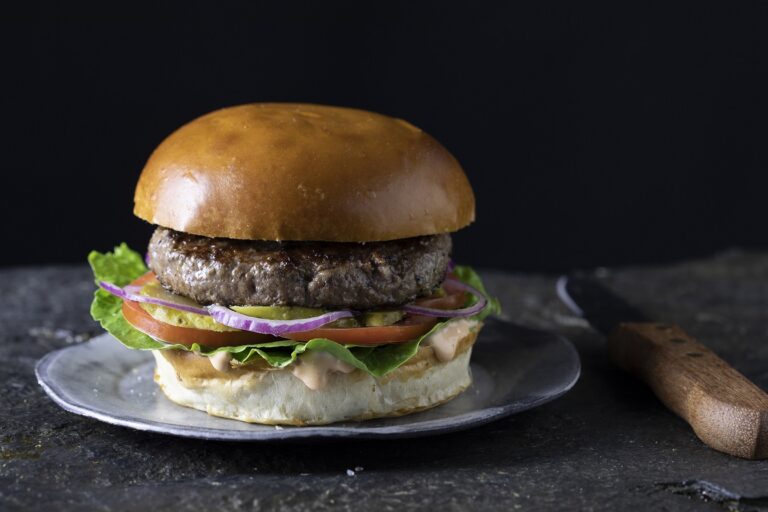
“By combining different types of mycelium we can create a unique ingredient which perfectly pairs with the particular taste, formability, texture, aroma, and even color of beef,” notes Mush Foods cofounder and CSO Dan Levanon. “Once you add 50CUT to ground beef, it acts like a sponge and absorbs all the water, juiciness, fat, aromatic compounds, and assumes the visual appearance of the beef.”
Melodea of Rehovot uses wood pulp, a side stream of the paper-making industry, to make a plastic-free, plant-based barrier coating for food, beverage and consumer packaging. Melodea’s cellulose nanocrystal coating is eco-friendly and replaces plastic or aluminum as a barrier to air, water, or grease seeping through single-use packaging.
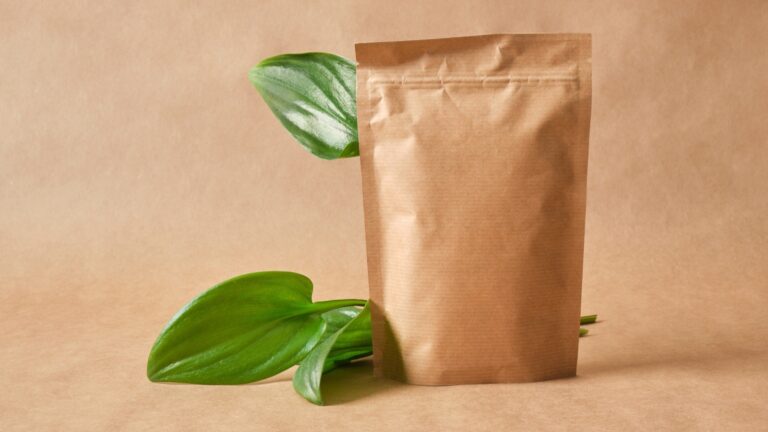
The award-winning technology is now being integrated in the packaging line of manufacturers across the globe, from South Korea to North and South America.
Daikawood of Rosh Ha’ayin has found a different use for wood waste such as sawdust: a new natural material to replace petroleum-based and hazardous wood-like materials. Daikawood is made by grinding wood waste and mixing in water and organic ingredients, including cellulose and food industry byproducts, to mimic the chemistry of wood.
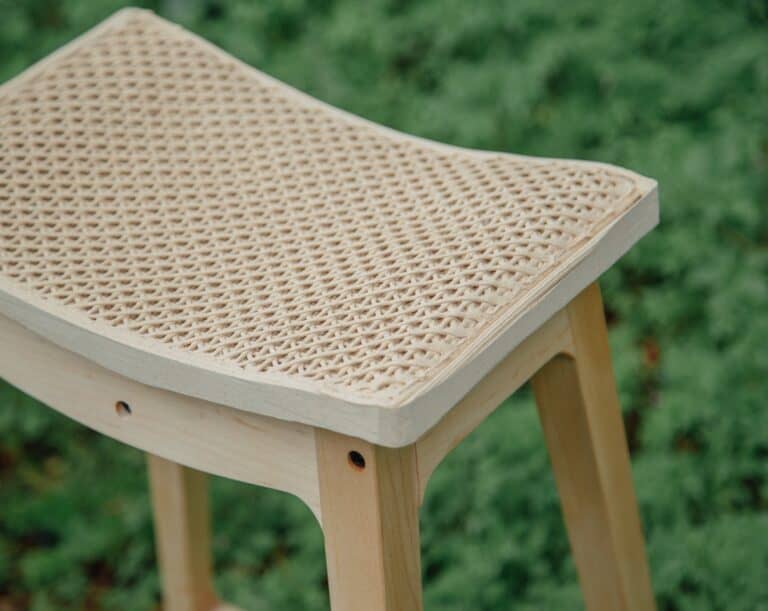
“At first, this raw material is like dough and can be further processed with molding, pressing, extrusion or layered manufacturing to form a product. Because we control the production process from first stage to final product, we can dye it and create patterns in it,” Daika CEO Shlomo Amir tells ISRAEL21c. Daikawood hardens into a raw material that is strong and fire retardant.
Criaterra Innovations of Holon is starting to make precast construction materials from restructured, locally sourced natural or recycled materials rather than cement. Wall tiles, cladding and load-bearing masonry blocks are composed of non-soluble minerals including concrete and asphalt industry leftovers.
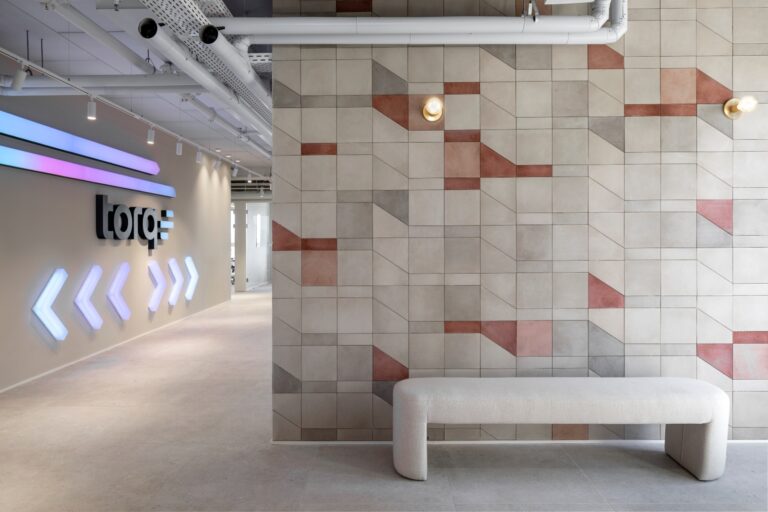
Founder Adital Ela says Criaterra products will always be made in facilities close to the building site. “In each geography we’ll adapt the formulation to use locally available materials,” she says Ela.
Boson Energy produces electricity from nonrecyclable waste. The technology will soon power an energy production facility at Wallhamn Port in Sweden – one of the largest vehicle handling ports in northern Europe – to charge vehicles unloaded in the port and to supplement the local power grid. An indoor farm near the port will receive green electricity, carbon dioxide and cooling directly from the facility.
The only solid residue from the carbon-negative conversion process is a glass slag that can be used as an environmentally friendly filling material, or further processed into insulation material. Boson has offices in Modi’in as well as in Luxembourg.




